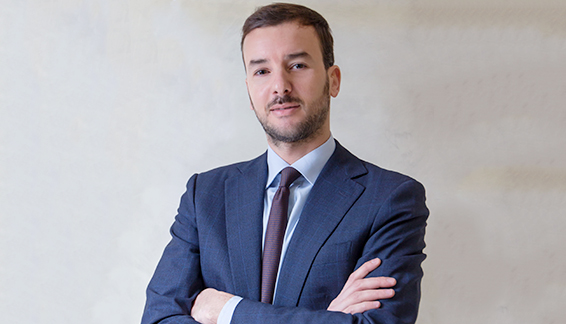Know the Score: The Legality Behind Transferring Football Players
The much anticipated transfer window is a period many football fanatics are well engaged in, as it determines the team’s potential for the year ahead.
Often hidden behind the scenes of such transfers are talented, sharp-minded legal experts, ensuring contracts are well refined and negotiations are handled sensitively.
This month, we speak with Guido Del Re, who specialises in this field. He discusses how transfer season is similar to usual M&A transactions and what teams should consider prior to transferring players.
What should a sports team and its team consider prior to transferring players?
They should assess the situation both in sports and in corporate terms, therefore, both how important the player is for the team, the company and the purchase and sale price [of the player] should be taken into account, so as to understand whether or not the transfer will determine a capital gain with a consequential impact on the club’s financial statements.
The contract is the basis of everything.
How vital is the contract in this process?
It is crucial. The contract is the basis of everything. A complete, well-written contract that governs all the foreseen and foreseeable circumstances in the relationship prevents ambiguity and interpretation.
Doubtlessly, negotiations are important and, in some cases, lengthy and complex
Furthermore, in your experience, what clauses in the contract during transferring players, are the most important to consider?
It depends on the type of player, their age and on the clubs involved, respectively, as purchaser and seller. Clearly, if the player is developing, it would be advisable to agree on a percentage in the event of a future resale or, in the case that the seller firmly believes in the football player’s potential, to provide for the so-called buy-back clause, which will allow the seller to repurchase the player by a certain date and at a predetermined price.
In addition, the FIFA board has announced that the new FIFA Agents Regulations will be issued in 2020, and this will introduce important changes.
Is this process similar to an M&A deal, in terms of negotiation and due diligence?
With regard to the transfer/purchase of a football player, I would say it is not. Doubtlessly, negotiations are important and, in some cases, lengthy and complex, yet no due diligence takes place, unlike in the case when the sale/purchase of a football club is negotiated.
Have there been any changes in regulations which have impacted sports people and the team in this area?
Many and, above all, continuous changes have taken place. For instance, the regulations on Sports Agents have recently changed again. In 2015, Sports Agents’ profession was completely deregulated, leading to the suppression of the necessary qualification exam. Conversely, at present in Italy, the exam has been reintroduced, the new CONI Agent Regulations have been published and the new FIGC Agents Regulations will be published shortly. In addition, the FIFA board has announced that the new FIFA Agents Regulations will be issued in 2020, and this will introduce important changes.
Avv. Guido Del Re
STUDIO LEGALE DEL RE
Roma, 00192, via Virginio Orsini n.21
tel.0632111235
fax 063226741
guidodelre@studiolegaledelre.it
www.studiolegaledelre.it
My name is Guido Del Re, I am an Italian lawyer practising my profession throughout Italy. Our head office is in Rome and we have two branch offices, one in Milan and the other in Crotone. I am Senior Partner of the Del Re Law Firm and my areas of expertise are Civil Law, Industrial Property Law, Contract Law and Sports Law.




